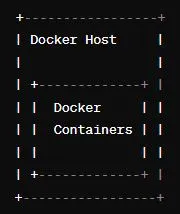Docker and Kubernetes between difference.
Docker and Kubernetes are both technologies used in the real of containerization and orchestration, but they serve different purposes and have different scopes
Published Feb 6, 2024
Last Modified Feb 8, 2024
Docker: Docker focuses on containerization.
Docker is a platform that enables developers to package, distribute, and run applications and their dependencies in containers.
It provides tools for building container images and managing containers on a single host machine.
Kubernetes: Kubernetes focuses on container orchestration and management of containerized applications at scale.
Kubernetes is a container orchestration platform that automates the deployment, scaling, and management of containerized applications across clusters of machines.
It provides features for managing container lifecycles, handling networking, storage, and automating tasks related to application deployment and management.
Docker Cons:
- Docker operates on a single host, resulting in inaccessibility of failed containers until manually addressed.
- Docker lacks built-in auto-scaling capabilities, hindering dynamic resource allocation.
- Containers do not automatically restart upon failure, necessitating manual intervention for recovery.
- Standard Docker support does not offer enterprise-level assistance by default, potentially impacting operational reliability.

Kubernetes Pros:
- Kubernetes mitigates the issue of single-host failures by managing container failures and relocating them as needed.
- Kubernetes offers built-in auto-scaling features, allowing for dynamic resource allocation based on workload demands.
- Kubernetes handles auto-healing by automatically restarting containers that fail, reducing the need for manual intervention.
- While standard support lacks enterprise-level assistance, Kubernetes support is available through CNCF, providing access to robust support options.
- Kubernetes effectively manages and resolves issues, such as failures, through its control mechanisms, enhancing operational reliability.

